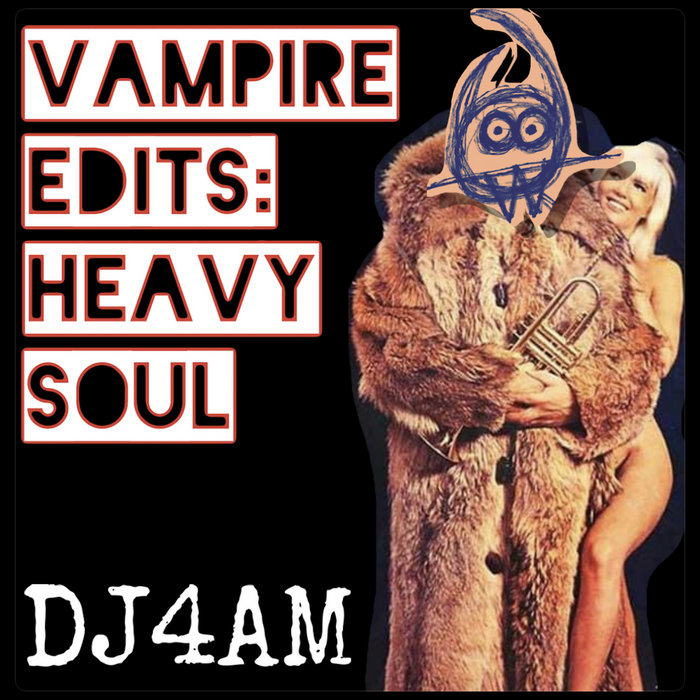
Vampire Edits: Heavy Soul – The Vampire On A Pony Network
this blog is GROOVY – check out great Soul, Funk, Jazz, Hip Hop, Bass, Breaks , Reggae, House n many more TUNES
When we think about music, our minds often drift to the catchy tunes and iconic melodies that have shaped entire generations. But in the bustling world of podcasting, a whole new rhythm has emerged—one that’s capturing hearts and ears everywhere. Let’s dive into the history of music within podcasts, groove with some fun facts, and celebrate how this genre is uniquely shaking things up!
Podcasts started winding their way into our lives around the early 2000s. They were like mixtapes for your ears! As technology evolved, so did podcasting. With iPods leading the charge (thanks Apple!), people could download episodes on-the-go. It wasn’t long before musical genius found its place in this medium.
The first real “music podcast” can be traced back to shows like KCRW’s Morning Becomes Eclectic, which showcased new tunes while keeping listeners informed about what’s hot on airwaves.
Over time, music podcasts sprouted like wildflowers across genres—from indie rock to hip-hop to classical jams! Some notable examples include:
This genre not only provides an auditory delight but also deepens our understanding of creativity and inspiration.
Did you know that Song Exploder kicked off after its creator Hrishikesh Hirway realized one day he was spending more time listening to songs than actually making them? Who knew procrastination could lead to such good vibes?
Not all musical podcasts take themselves too seriously! Enter the world of comedy-infused soundscapes where humor reigns supreme.
Take My Dad Wrote a Porno, for example. Hosts read erotic novels written by one host’s father—and yes, they sprinkle in some hilarious commentary along with it. Not exactly traditional music content but grooving nonetheless!
Another hit is The McElroy Brothers’ Adventure Zone, blending tabletop role-playing games with quirky characters—all accompanied by unique original scores.
Remember Weird Al Yankovic? Well, he once turned his album release parties into epic live events featuring costumes based on his song parodies! Imagine Al dressed as Yoda belting out “Yoda”—now that’s a funny mental image worthy of any podcast discussion!
A significant aspect of many music-focused podcasts is storytelling—the narratives behind famous tracks or lesser-known gems create connections between listeners and artists.
Shows like Dissect get down into the nitty-gritty details analyzing albums from cover-to-cover with passion reminiscent of those late-night conversations spent dissecting lyrics over pizza slices (we’ve all been there!).
Music genre integration thrives through these beautiful podcast platforms! You’d find cultural influences as diverse as cumbia rhythms mingling with jazz or hip-hop beats paired beautifully against acoustic melodies—it opens realms you never even thought existed before starting your listening journey!
There’s no shortage when it comes down to quirky band names either! Ever heard about “Anal Cunt” or “Ironic Mother”? They might make you snicker at first glance—but hey—they’re doing their thing in underground scenes worldwide; all part winning character traits that make these storylines perfect fodder for discussions amongst podcasters poking fun at art forms’ eccentricities too!
One magical thing about musical pods is community building—a shared love creates fans who connect over similar tastes while fostering friendships along lines familiar through auditory experiences too…
Podcasters often engage listeners via social media; after an episode drops discussing an artist suddenly EVERYONE starts sharing playlists inspired directly from them talking candidly together… it makes beautiful relationships blossom among strangers who jam together online every day now without even touching instruments physically sometimes —it’s pure gold!!
And did we mention how industry giants are caught getting influencer-y themselves? Take Taylor Swift’s strategic use leveraging her narrative influence showcasing other artists during guest appearances – she elevates everyone involved straight upward toward main stage types regularly–go T-Swift!! 🚀❤️💖✨
As we roll forward into newer tech advancements shaping entertainment industries further ahead always—music will keep evolving deeper intertwining itself inside modern-day digital dialogues akin connecting billions globally already existing out here right now soaking up audio happiness nonstop… So pour yourself another cup o’whatever gets ya vibin’, turn up those speakers nice ‘n loud—we’ve just barely scratched surface discovering groovy elements waiting patiently beyond next queue helping accompany escapism anytime desired… Happy Listening y’all!!

Vampire Edits: Heavy Soul – The Vampire On A Pony Network